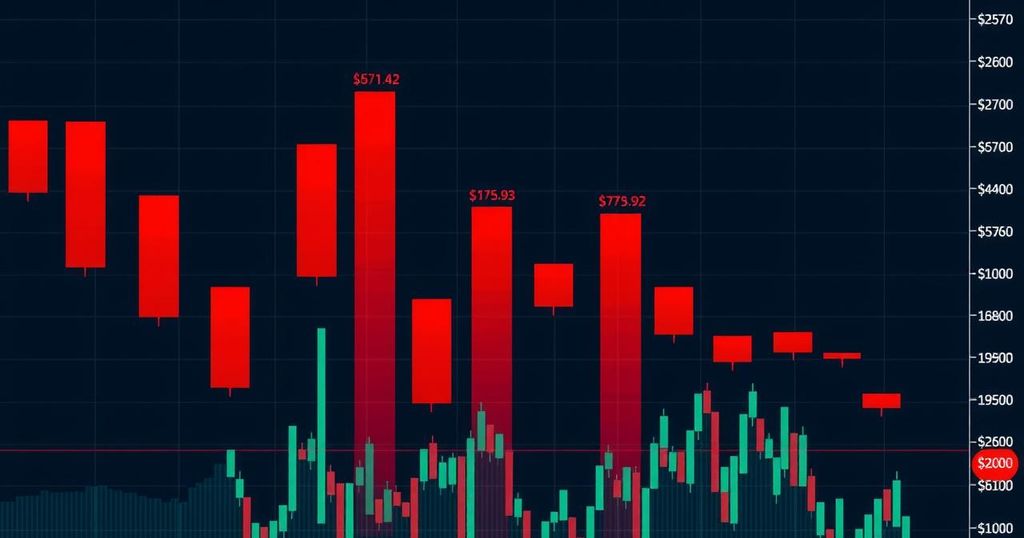Bitcoin
Market
BITCOIN, BTC, COINDESK, CRYPTOCURRENCY, D. C, FED, FEDERAL RESERVE, FINANCE, JEROME POWELL, MARKET ANALYSIS, MARKETS, NASDAQ, NORTH AMERICA, POWELL, SEEKING ALPHA, STEPHEN, STEPHEN ALPHER STEPHEN, TRUMP, U. S, UNITED STATES, UNIVERSITY OF, UNIVERSITY OF PENNSYLVANIA, WASHINGTON, WASHINGTON, D. C, WHARTON SCHOOL
Nikita Petrov
0 Comments
Bitcoin Price Declines After Fed Chair Powell Raises Stagflation Concerns
On Wednesday afternoon, Bitcoin’s price fell 2.5% amid concerns raised by Fed Chair Jerome Powell regarding President Trump’s tariff policies. Powell warned of potential stagflation, mirroring economic conditions of the 1970s. Following this, U.S. stocks also declined significantly, with the Nasdaq down 3.4%.
Bitcoin’s price volatility witnessed a notable downturn on Wednesday afternoon, primarily influenced by remarks from Federal Reserve Chairman Jerome Powell. During his address, Powell cited substantive concerns regarding the economic repercussions of President Trump’s tariff policies, signalling potential stagflation, akin to economic conditions of the 1970s characterized by stagnant growth and rising inflation. Following these comments, Bitcoin experienced a sharp decline, dropping approximately 2.5% to around $83,700, marking a 1.5% fall over the preceding 24-hour period.
Powell’s assertion that the anticipated economic effects of the tariff increases would be “significantly larger than anticipated” spooked investors. He reiterated the dual challenge of achieving both low inflation and stable economic growth, indicating potential tensions within the Federal Reserve’s dual mandate. Consequently, U.S. stock markets were also negatively impacted, reversing early gains as the Nasdaq composite plummeted by 3.4% to reach a session low, reflecting widespread investor apprehension across asset classes.
In summary, Bitcoin’s price decline was a direct response to Powell’s inflationary warnings and economic forecasts. Both the cryptocurrency and the stock market reacted unfavorably to indications of increased tariffs leading to potential economic stagnation and inflated costs. Traders and investors are now closely monitoring future developments from the Federal Reserve in light of these warnings.




Post Comment